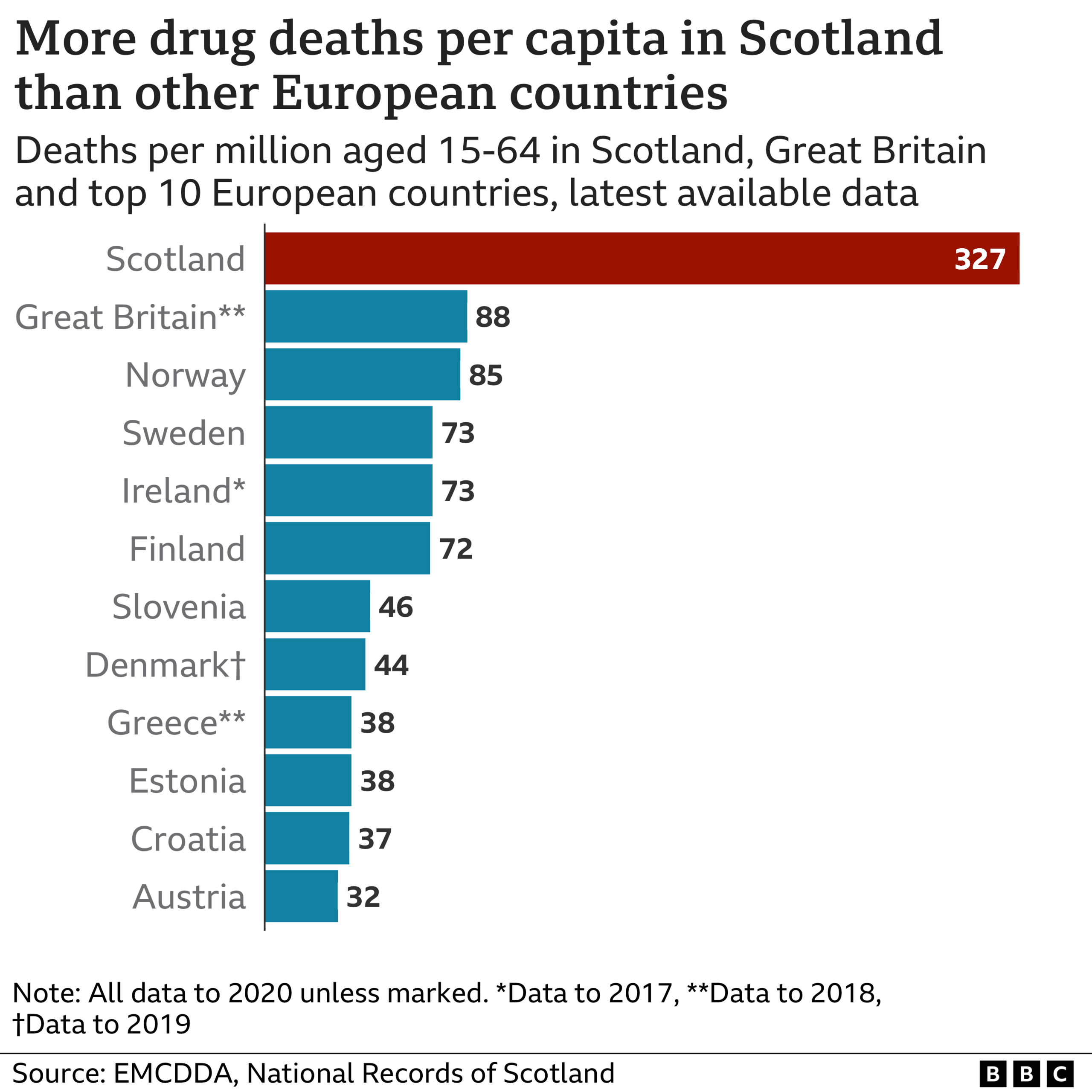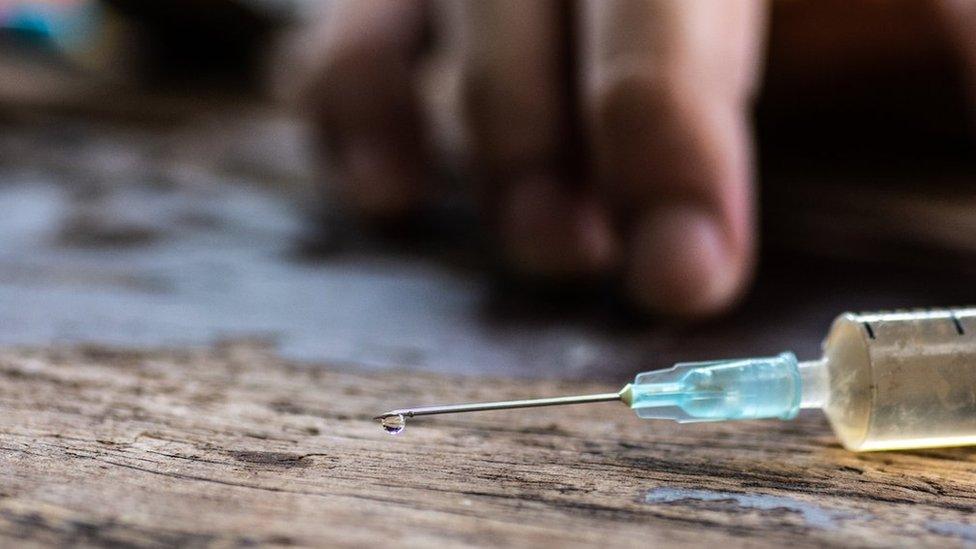I never enjoyed taking drugs - it was self harm
- Published
Chris Middlemass said becoming a heroin user in his mid-20s broke him as a person
Before he turned 16 Chris Middlemass had tried cannabis, cocaine, ecstasy, LSD and amphetamines.
But it was only when he began using heroin in his mid 20s that things really fell apart.
"That just ruined my life," he said. "It wasn't like I turned into someone robbing a granny or breaking into houses or anything like that but as a person it broke me.
"I just felt like scum."
Chris, who grew up on a housing estate on the fringes of Edinburgh, said that while he has known drug addicts from all walks of life, poverty is a significant factor in drug use.
The latest statistics from the National Records of Scotland (NRS) appear to bear that out.
In 2021, after adjusting for age, people in the most deprived areas of the country were more than 15 times as likely to die from drug misuse as those in the least deprived areas according to NRS.
"I've got a lot of trauma from my childhood as well that I was blurring out with the drugs and the drink," said Chris, adding "I was self-harming myself. I never enjoyed any of it."
Chris, 41, said he was now keeping his addiction under control with a daily prescribed dose of the synthetic opiate methadone.
He hopes to come off soon but recent mental health problems have complicated things.
In December, he said, he was sectioned under the Mental Health Act and admitted to hospital with psychosis.
He had been taking what he calls street tablets - probably benzodiazepines such as Valium although in truth he doesn't really know what was in them. It could have been anti-psychotics and rat poison, he said.
"My mind didn't know how to handle stopping taking them," he added.
In Chris's experience a particular problem is mixing drugs.
According to NRS, in 93% of all drug misuse deaths in 2021, more than one drug was found to be present in the body, with opiates such as heroin present 84% of the time and benzodiazepines 69% of the time.
"There's a lot of that going on," said Chris. "If you're taking heroin, you're taking diazepam. If you're taking diazepam, you're smoking cannabis. If you're smoking cannabis, you're having a drink."
How should we support drug addicts?
As Scotland grapples with this national emergency there is a fierce debate about how best to support drug users.
Chris now lives in Glasgow where there are a variety of services designed to help addicts inject heroin as safely as possible.
At a homeless shelter run by Hillcrest Futures in Kinning Park, staff have stocked a vending machine with clean needles and other paraphernalia to try to cut down the risk of infection from viruses such as HIV and hepatitis C.
Laura Semple who helps run the facility argued that the Scottish government's hands are tied by Westminster's refusal to make radical changes to the UK's drugs laws.
"If you decriminalise drugs, then you would cut out the profit making," she said.
It would also allow the drugs crisis to be treated as a health rather than a criminal issue, she said, with doctors prescribing controlled substances which could be taken in a monitored environment.
Annemarie Ward of the charity Faces and Voices of Recovery (FAVOR) UK had a different take.
She said First Minister Nicola Sturgeon is to blame for the fact that Scotland's drug deaths are now more than five times as high as those in neighbouring England.
"It's a massive failure of government," said Ms Ward, accusing the SNP leader and her team of repeatedly returning to the same experts "who got us into this mess".

The approach Ms Ward would like to see adopted is also the position being proposed by the Scottish Conservatives..
While she said money being spent on harm reduction is vital, she worries addicts are not being offered the chance to get well, to detox, get rehab and recover.
Chris meanwhile is hopeful that he is on the road to recovery at least.
A charity called With You, external has helped him and he's now volunteering to help others at a group called North West Recovery, external.
However he agreed that, as well as help from the state and peers, there is an element of personal responsibility to consider.
"I don't blame anybody else anymore," he said. "It was me that ended up making choices, especially when I got into adulthood.
"I'm very lucky to be alive," he added, having survived many occasions when he could have overdosed and died.
"I've had people within my life that have passed away, sadly, to overdose and it's horrible," he said.
"I'm so lucky and I've got to grasp a hold of this opportunity that I've got in my life now to turn it around."
Related topics
- Published28 July 2022
